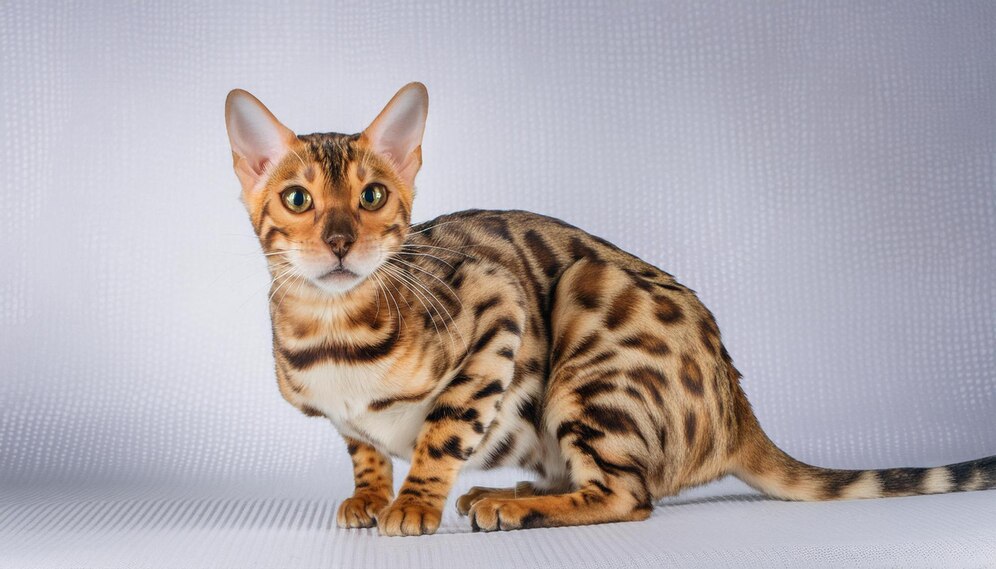Our cats are truly remarkable creatures, blessed with an extensive range of vocalizations that never fail to capture our attention. From their gentle purrs to mysterious meows, each sound tells a unique story. Among these fascinating sounds, one particularly intriguing behavior is known as “chattering.” If you’ve ever noticed your cat making strange clicking or chirping noises, especially while watching birds through the window, you’re witnessing this captivating feline behavior.
What Does Cat Chattering Mean?
Cat chattering is a distinctive vocal behavior that typically occurs when your feline friend spots something they desperately want but can’t reach – most commonly, prey like birds or insects. Read 5 Angry Cat Sounds To Understand In 2024
This behavior is characterized by rapid mouth movements accompanied by a series of quick, clicking sounds. While each cat has their own unique chatter, it usually sounds like a combination of teeth clicking and short, high-pitched squeaks. The fascinating part is that every cat’s chatter has its own special pitch and frequency, making it as unique as their personality.
The Science Behind Cat Chattering
One of the most widely accepted explanations for cat chattering is known as the “Kill Bite Theory.” According to this theory, the chattering motion mimics the precise killing bite that cats use in the wild to dispatch their prey. When hunting, cats aim for the prey’s neck, using a specific biting motion to sever the spinal cord. The chattering movement might be your domestic cat’s instinctive practice of this hunting technique, even if they’ve never actually hunted in their life.
Another intriguing theory emerged from research conducted by the Wildlife Conservation Society and Federal University of Amazonas. Read When Does a Cat Become an Adult?
They discovered something remarkable while studying wild cats in the Amazon: some species, particularly the Margay, could actually mimic the sounds of their prey to lure them closer. This discovery has led researchers to wonder if our domestic cats might be attempting something similar when they chatter at birds or other potential prey.
Cat Chattering in Different Contexts
When your cat chatters at birds, you’ll notice their entire body language changes. Their body becomes tense, eyes widen, whiskers point forward, and their tail might vibrate or twitch. Sometimes, you might even notice their skin rippling along with the chattering sound. This complete physical response shows just how deeply ingrained these hunting instincts are, even in our well-fed house cats. Read How To Clean a Litter Box Step by Step
Interestingly, some cats also chatter at their human companions. While this behavior isn’t as common as chattering at prey, it often occurs during playtime or when cats are trying to communicate something specific to their owners.
Some cat breeds, particularly the vocal Siamese, are more prone to using chattering as a form of communication with their humans. Recent studies have even shown that cats can learn to mimic certain human behaviors, suggesting their vocal abilities might be more sophisticated than we previously thought.
Health Considerations and When to Worry
While chattering is typically a normal and healthy behavior, there are times when it might signal underlying health issues. If you notice your cat chattering excessively or in unusual situations, particularly if accompanied by symptoms like drooling, pawing at the mouth, bad breath, or eating on only one side of their mouth, it’s time to consult your veterinarian.
Read How to Stop Your Cat from Peeing Outside the Litter Box
These signs could indicate dental problems, oral pain, digestive issues, or other health concerns that require professional attention.
The Mother-Kitten Connection
An interesting aspect of cat chattering relates to maternal behavior. Mother cats often use chirping or chattering sounds to communicate with their kittens, especially during the early weeks of life.
Initially, they use purring, but once the kittens’ ear canals open, mothers switch to chirping noises to signal feeding time or to call their kittens back when they wander too far. This early communication pattern might explain why some adult cats continue to use chattering as a form of social interaction.
Understanding Your Cat’s Communication
Indoor cats typically chatter more frequently than their outdoor counterparts, largely because they spend more time watching potential prey through windows. Unlike feral cats, who rely more on silent communication, domestic cats have developed more vocal ways of expressing themselves, particularly with their human families.
Read Why Does My Cat Scratch the Floor After Eating?
This adaptation shows how cats have evolved to live alongside humans, developing more sophisticated ways of communicating their needs and emotions.
Recent Research and Future Understanding
Scientists continue to study cat vocalizations, including chattering, as there’s still much to learn about these complex behaviors. Research suggests that cats might use various types of sounds that haven’t been fully documented or understood yet.
This ongoing research helps us better understand our feline companions and their unique ways of communicating with both their environment and their human family members.
Final Thoughts Why Do Cats Chatter
Cat chattering remains one of the most endearing and intriguing behaviors our feline friends display. Whether it’s an expression of hunting instincts, frustration, excitement, or communication, this behavior gives us a fascinating glimpse into our cats’ natural instincts and emotional lives.
Remember, while chattering is usually perfectly normal, any sudden changes in your cat’s vocal behaviors or accompanying signs of distress should be evaluated by a veterinarian.
Read Further



